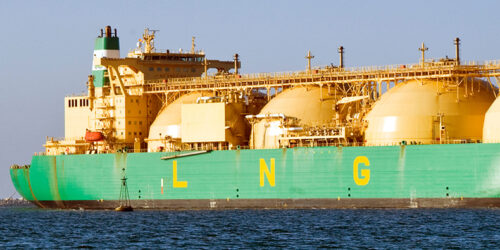With cancellation of LNG cargoes which were due in the country after November 19 and failure in arranging eight LNG cargoes for December and January, the gas crisis will certainly touch a new high in the peak winter season and this situation has virtually rung the alarm bells for the industrial sector.
Now the government is making its mind to either reduce or close down gas supply to captive power plants for the export sector during the peak winter season putting the surge in exports in a danger zone.
The All Pakistan Textile Mills Association (APTMA) has expressed concerns over the move to close down gas supply to the export sector, arguing that closing the export-oriented industry would be disastrous for the country.
A senior official at the Petroleum Division confirmed to The News that the government is pondering over cutting down gas supply to captive power plants of the export industry during the peak winter season, keeping in view the severe gas shortage. However, commerce ministry sources said that in the first four months of the current financial year, according to latest figures, the textile exports went up to $6.040 billion, registering a growth of 27 per cent if compared with the exports in the same period of the last fiscal year.
“The gaining momentum in exports is now under severe threat because of the move within the energy ministry to close gas supply to the textile sector.” Executive Director Shahid Sattar said new customers and markets gained over the last 2 years would be lost if delivery schedules are not met, reversing all the excellent performance of the government in achieving rejuvenation of the textile sector.
“This will also not help realize the target of textile exports of $21 billion set for the current year. So far, a massive investment of $5 billion has been made in the sector that will go waste if textile units are closed down.”
He argued new jobs will be put on hold and unemployment would increase as a result of the closure of the units even if the energy supply is halted temporarily. “And the ongoing expansion and upgradation in the sector will be stalled and this expansion has started about after a decade where the energy availability was the prime issue.”
Under these conditions, closing down the export-oriented industry is not an option. The important point to note is that 85% of the industry requires gas to continue operating as it is dependent on cogeneration for steam and process and also because the majority of mills don’t have an alternative energy source.
However, the APTMA keeping in view the ground realities has said that industry can reduce the gas off-take for the winter season if the government reduces power tariff for the sector to 7.5 cents/Kwh from 9 cents.
The APTMA urged the government to enforce the temporary uniform gas-RLNG rates across the country strictly for three months of winter. The APTMA asked the government to ensure availability of furnace oil at reasonable prices. The export industry to this effect underscored the energy ministry to submit a summary to the ECC for importing furnace oil on an urgent basis and rationalizing taxes, especially sales tax.
The APTMA believed that this would save another 30-40 mmcfd of gas as a lot of mills, even co-generation ones using steam still have furnace oil plants which could be refurbished and started up within a month.







